Five Challenges for Education in England
17th December 2016
 This was one of the more depressing presentations I’ve given in recent times. The Access Project asked me to talk about the top three challenges for education. Unfortunately I couldn’t keep it to three so here are my five.
This was one of the more depressing presentations I’ve given in recent times. The Access Project asked me to talk about the top three challenges for education. Unfortunately I couldn’t keep it to three so here are my five.
I’m afraid this isn’t quite as ‘solutions focused’ and positive as I like to be, but I think it needs saying…
- The pace of change recently has been bonkers. It’s added to teachers’ workload and made it hard to navigate the system. It also makes planning and evaluating things tricky, and unfortunately things aren’t about to calm down yet.
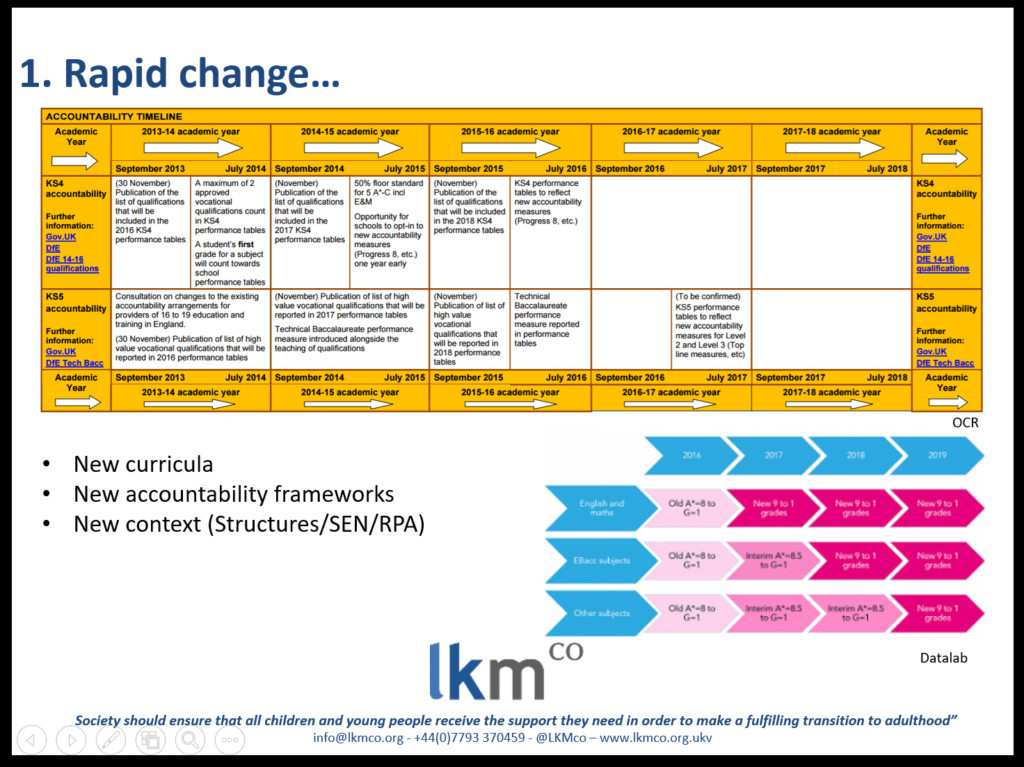
- I started getting very nervous about recruitment and retention a couple of years ago which is when I thought we’d better start work on “Why Teach?” Unfortunately my prediction has since been proved right with pretty much everyone tearing their hair out about the issue now. We’ll be publishing more on this in the New Year.
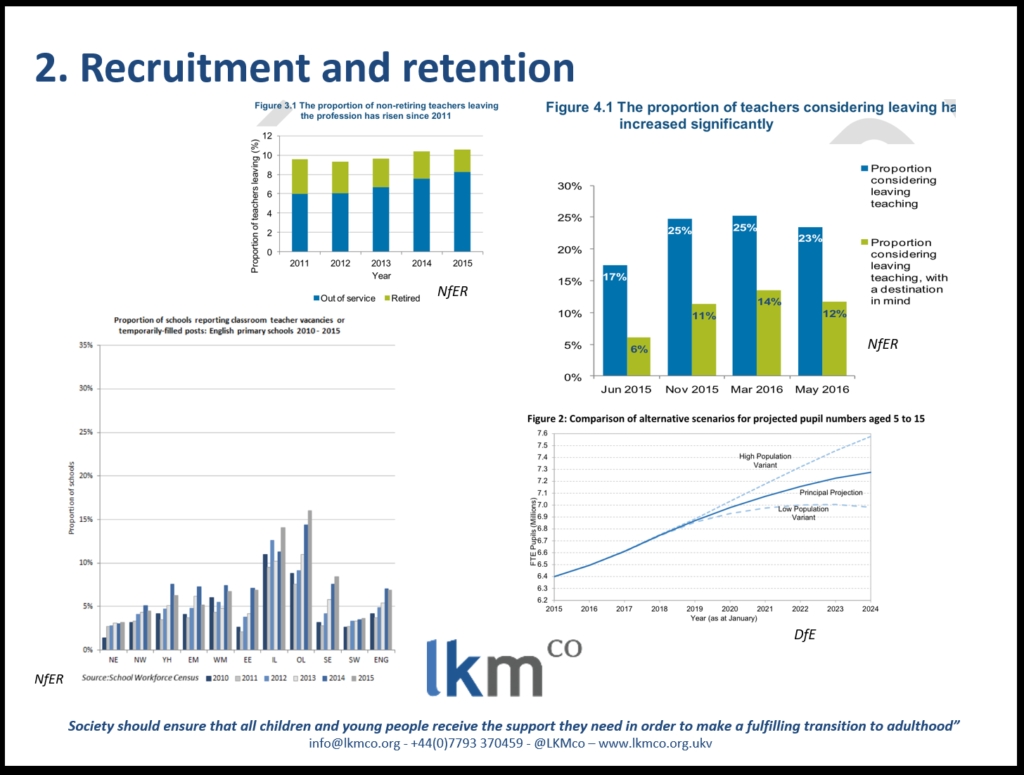
- Why Teach and the government’s own survey showed that recruitment and retention were closely linked to spiralling workload. This needs to change. It’ll probably mean that schools and teachers have to stop doing some of the things they value as reducing workload moves up the priority list. Tough choices are going to need to be made: books marked every week or teachers to teach the classes?
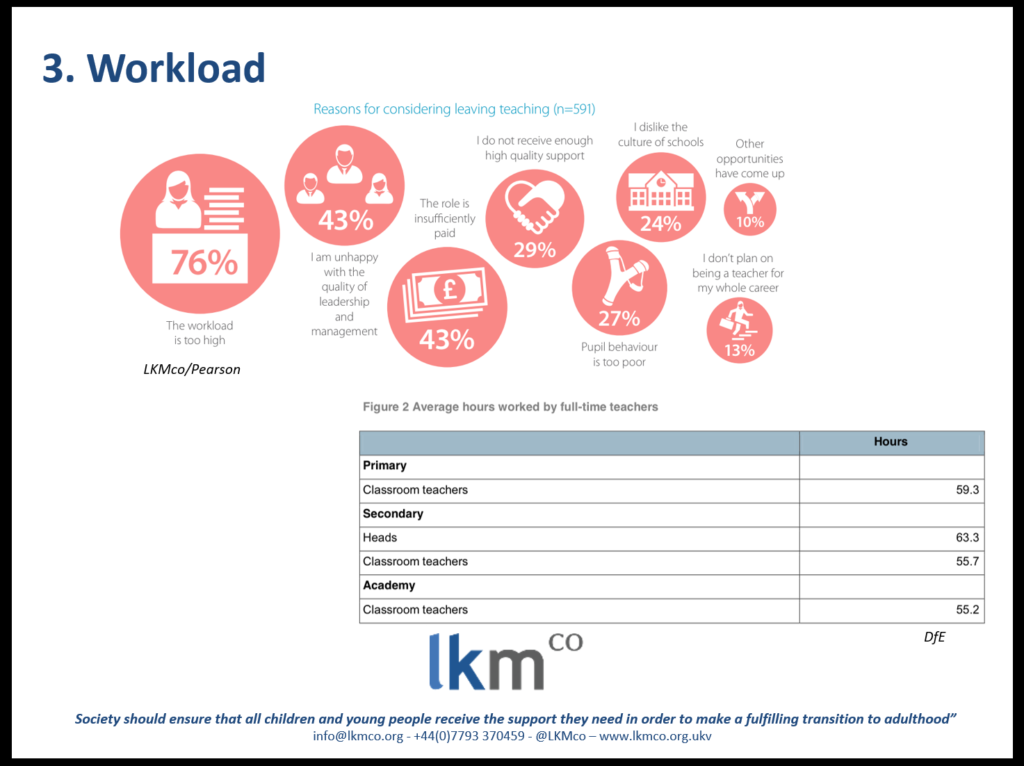
- Funding has been all over the news this week and initial reactions to the National Funding Formula consultation have been quite positive (yay! Good news!) However, let’s not forget the NAO report on the upcoming £3 billion budget cut. Cuts in education will be grim.
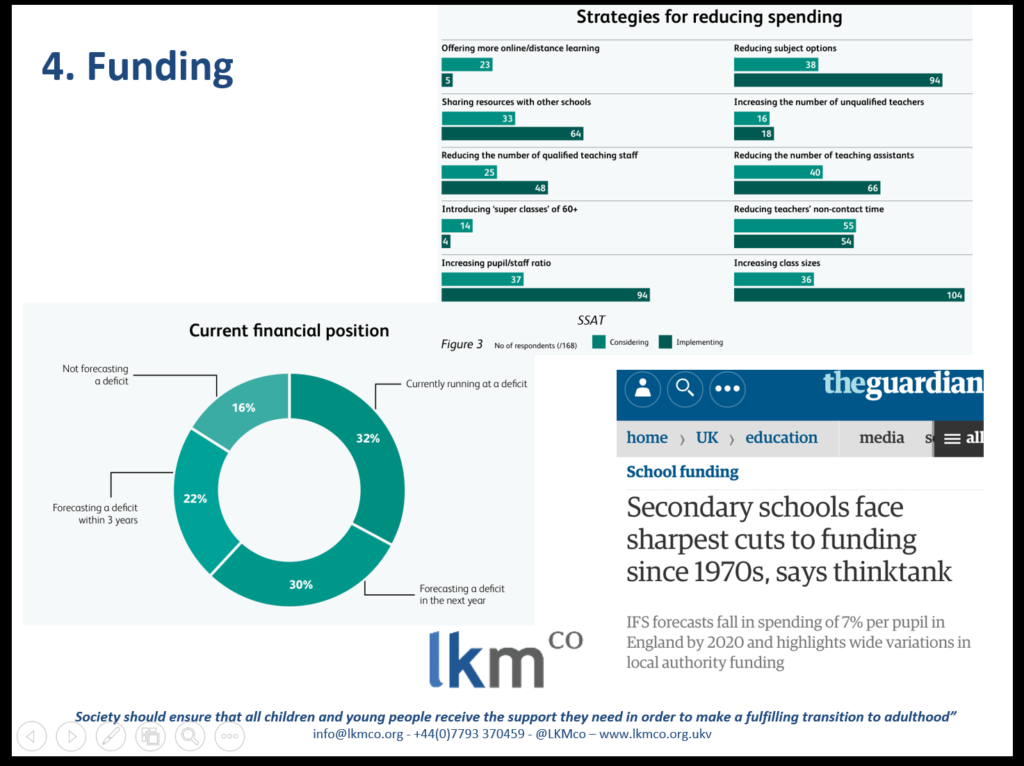
- People aren’t talking about this one enough yet and they should. I’m all in favour of ‘high expectations’, ‘standards’ and cracking-down on poor behaviour (I even wrote this in favour of some sort of ‘no excuses’) However, the fact that inclusion has gone out of fashion is a bad thing and frightening numbers of vulnerable kids are getting ‘Pushed Out’.
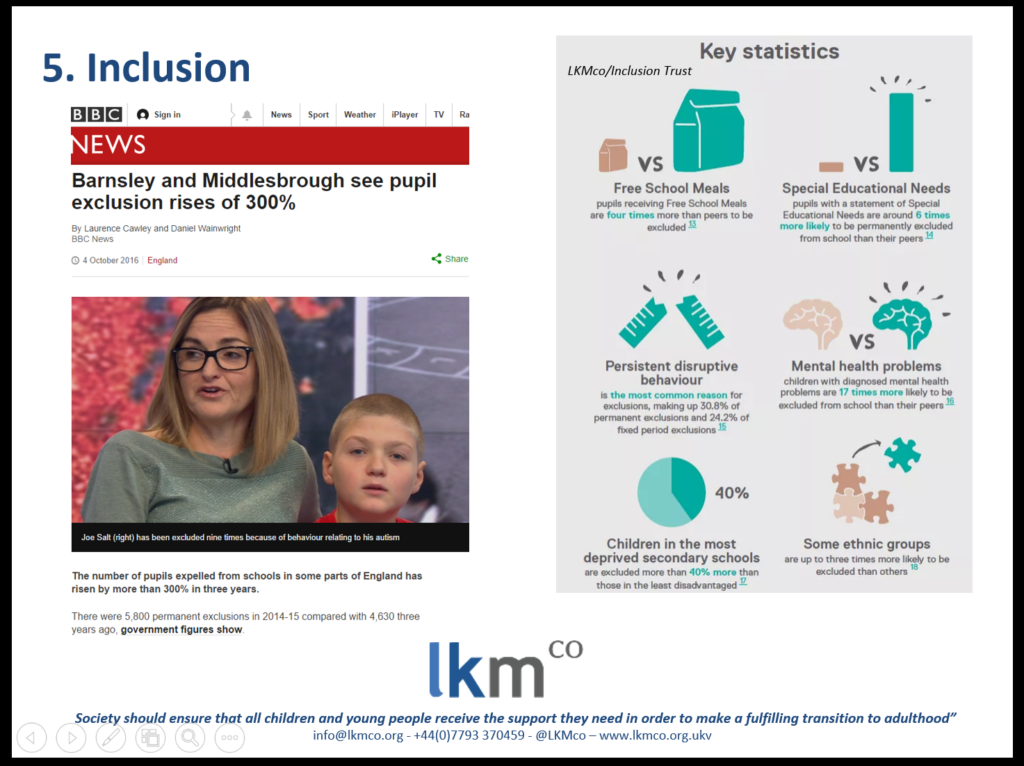
Hope
So errr. Hope? Afraid this is a bit tentative:
 Hopefully, as the biggest challenge for schools becomes staffing, they’ll have to take talent management and teacher well-being seriously. Teachers are clearly not expendable resources and recognising that will change the way things are done. The most successful schools will be the ones that support and deploy their workforces best.
Hopefully, as the biggest challenge for schools becomes staffing, they’ll have to take talent management and teacher well-being seriously. Teachers are clearly not expendable resources and recognising that will change the way things are done. The most successful schools will be the ones that support and deploy their workforces best.- Everyone’s been talking about collaboration for a while but it’s not just rhetoric. There are great examples of schools working together and schools and MATs are being encouragingly innovative about it. Some schools will respond to limited resources by locking down and focusing in on themselves but others will do the opposite. I know which ones I think will come out strongest.
- Research and Evidence is still mainly a minority geeky pursuit but I do think it’s starting to become that bit more normal and lots of organisations like the Institute for Teaching, The College of Teaching, the EEF and we at LKMco are trying to push things along further.
- The nature of our work is that we work with dozens of amazing social enterprises and charities every year. All of them are working to support schools and education more widely. They’re getting smarter about what they do and that bit less London-centric. This is definitely a good thing.
- I reckon that most conversations I now have in education are largely premised on a recognition of the appalling levels of socio-economic inequality in our education system and an impassioned desire to address that. I realise I live in an echo chamber that revolves around that single issue but I do think that “education is unequal and we need to address that” is now becoming axiomatic. My sense is that far fewer schools are unaware of the socio-economic attainment gap than before. Unfortunately it’s unclear the extent to which we are being successful in addressing the problem but “awareness + being bothered” is a crucial first step in addressing inequality.
Download the presentation here

Comments